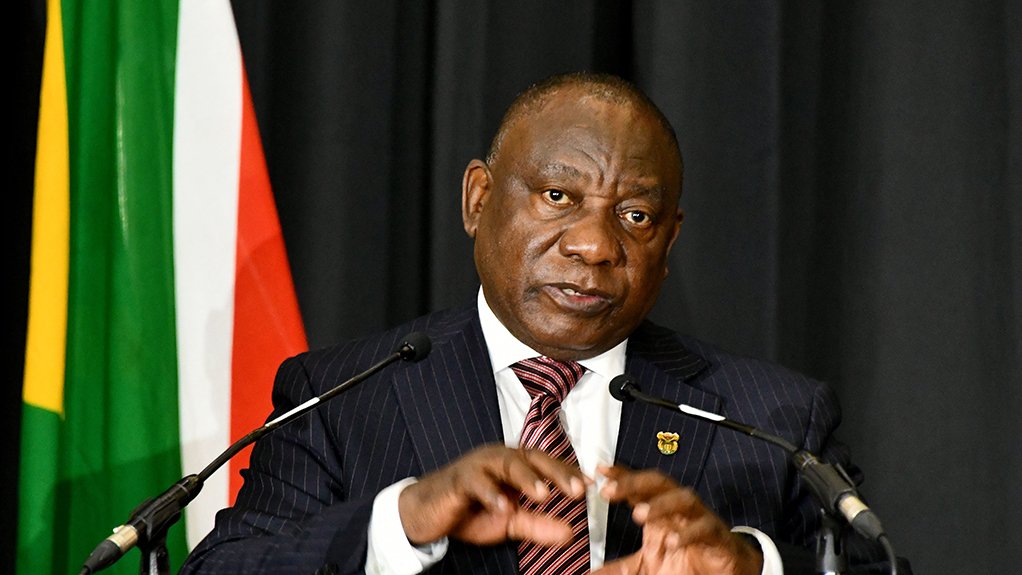President Cyril Ramaphosa has entered the politically charged discussion on the reasons behind the recent dramatic reduction in loadshedding ahead of what is expected to be a highly competitive election and amid allegations that the reprieve is being stage-managed to improve the governing party’s prospects and will, thus, not be sustained.
Writing in his weekly newsletter at a time when Eskom had refrained from implementing the unpopular rotational power cuts for a period of more than a month and a half, Ramaphosa denied that it was a “political ploy ahead of the elections”, while indicating that it was “too early to say that loadshedding has been brought to an end”.
He attributed the recent improvement to the progress being made under the Energy Action Plan’s (EAP’s) objectives of “fixing Eskom, unlocking private investment in energy generation, accelerating the procurement of new capacity and supporting rooftop solar”.
Ramaphosa, thus, dismissed speculation that there was less loadshedding because Eskom was using the diesel-fuelled open-cycle gas turbines (OCGTs) “to keep the lights on in the run-up to the elections”.
There have been persistent suggestions in recent weeks that Eskom has managed to provide supply stability for the past 46 days only because it is ignoring its diesel budgets and operating what are meant to be peaking plants almost continuously.
Eskom has strenuously denied these allegations, issuing a statement on May 10 stating that during April 2024, when no loadshedding was declared, R1.1-billion had been spent on its OCGTs and those operated by independent power producers to produce 167.8 GWh. “This is about 60% less than April 2023 when R3.1-billion was spent to produce 470.22 GWh.”
The State-owned utility did, however, exceed its R30-billion OCGT budget for 2023/24 by R3-billion, and also spent a material R3.3-billion in March, against R2.1-billion in the same month of 2023.
Nevertheless, Eskom reported that OCGT usage was falling and announced a diesel budget for the current financial year, which began on April 1, of R5.8-billion. However, R1.16-billion, or 19.7%, had already been spent by May 9.
The utility also insisted that the current period of loadshedding respite was the result of it having reduced unplanned outages by 4 400 MW and an improvement in the energy availability factor (EAF) to above 60%, following a sustained period during which the EAF had been on a steep decline.
In a briefing on May 13, Electricity Minister Kgosientsho Ramokgopa reported that the EAF had recently breached the 70% level for the first time since August 2021.
The EAF, he reported, was tracking at 64.34%% for the month-to-date and at 59.92% for the year-to-date.
Eskom missed a board-set target of 65% for the end of the 2023/24 financial year, but a 70% EAF target had nevertheless been sustained for the 2024/25 financial year.
The focus on diesel also led the National Energy Regulator of South Africa (Nersa) to issue a statement on May 10 distancing itself from a media report indicating the Nersa was concerned and critical of Eskom for spending on diesel well ahead of budget.
For his part, Ramaphosa argued that the stabilisation in the availability of electricity and reduction in breakdowns signalled a “real trend in improved plant performance”.
He also used his newsletter to highlight the non-Eskom generation capacity being facilitated under the EAP and through various reforms.
“Removing the licensing threshold for new power generation projects has led to significant private investment in the energy sector.
“There is now a pipeline of more than 130 private energy projects, representing over 22 500 MW of new capacity, some of which are already starting to connect to the grid,” he said, noting that by November the capacity of rooftop solar had reached over 5 000 MW and had more than doubled in 12 months.
“More bid windows have been released for new capacity from solar, wind, gas and battery storage, with more than 10 000 MW currently in procurement through public programmes,” he added.
EMAIL THIS ARTICLE SAVE THIS ARTICLE ARTICLE ENQUIRY
To subscribe email subscriptions@creamermedia.co.za or click here
To advertise email advertising@creamermedia.co.za or click here











